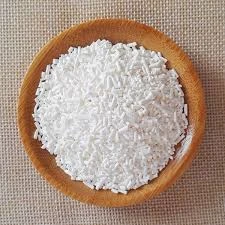
Exploring the Impact of Artificial Food Preservatives on Health and Safety
The Role and Impact of Synthetic Food Preservatives
In an era where convenience often reigns supreme, synthetic food preservatives have become an essential part of our modern food system. These chemical compounds are added to various food products to inhibit spoilage, prevent the growth of harmful microorganisms, and extend shelf life. While synthetic preservatives serve crucial functions in food safety and quality, they have also prompted significant debate regarding their health implications and environmental impact.
Understanding Synthetic Preservatives
Synthetic food preservatives are artificially produced chemicals derived from various sources, designed to enhance the longevity and stability of food products. Common examples include sodium benzoate, potassium sorbate, and sulfites. These substances are particularly effective against spoilage caused by bacteria, yeast, and molds, which can compromise food safety and lead to foodborne illnesses.
The primary goal of these preservatives is to slow the natural degradation process of food, thereby reducing waste and making it easier to distribute products over long distances without compromising quality. For manufacturers, this means longer shelf lives and reduced losses due to spoilage. For consumers, it translates into greater availability and accessibility of a diverse range of foods, including perishable items like dairy, meats, and baked goods.
Health Concerns and Controversies
Despite their benefits, synthetic food preservatives have not gone unchallenged. Numerous studies have raised concerns about the potential health risks associated with long-term consumption of foods containing these additives. Some individuals may experience allergic reactions or sensitivity to certain preservatives, such as sulfites, which can lead to respiratory issues or skin irritations.
Moreover, there is an ongoing debate about the possible links between synthetic preservatives and various health issues, including hyperactivity in children, cancer, and other chronic diseases. While regulatory bodies such as the FDA and EFSA deem many preservatives safe in regulated quantities, consumers remain cautious. This wariness has contributed to the rising demand for preservative-free and organic products, which often rely on natural alternatives like vinegar, salt, and lemon juice for preservation.
synthetic food preservatives

The Environmental Impact
In addition to health concerns, the environmental ramifications of synthetic food preservatives warrant attention. The production and disposal of chemical preservatives can have negative effects on ecosystems, particularly if industrial practices lead to pollution. However, on the flip side, the use of these preservatives can reduce food waste, which is a significant contributor to environmental problems, including greenhouse gas emissions from decomposing organic matter in landfills.
It is crucial to strike a balance between maintaining food safety and minimizing environmental impact. Research is ongoing into more sustainable preservation methods that leverage natural ingredients, reducing reliance on synthetic chemicals while achieving similar outcomes.
Consumer Awareness and Future Trends
As consumers become more health-conscious, awareness regarding the ingredients in food products grows. Labels are scrutinized, and transparency in food production is increasingly demanded. This shift is not only influencing manufacturers to seek alternative preservation methods but is also shaping regulatory policies concerning food additives.
Emerging trends include the development of clean, minimally processed foods that prioritize natural ingredients over synthetic ones. Innovations in food technology, such as high-pressure processing and advanced refrigeration methods, are being explored as viable alternatives to traditional preservatives.
Conclusion
Synthetic food preservatives play a vital role in the modern food industry, ensuring food safety and longevity. However, the dialogue surrounding their use is essential as it reflects broader societal concerns about health, sustainability, and transparency. As the food industry evolves alongside consumer preferences, the focus will likely continue to shift towards safer, more environmentally friendly preservation techniques, fostering a healthier relationship between food production and consumption. The future of food preservation may very well be a harmonious blend of tradition and innovation, marrying the best of both worlds to create a safer and more sustainable food system.
-
Buy High-Quality Trichloroisocyanuric Acid for Sale | TCCA 90% SupplierNewsAug.30,2025
-
Pure Sodium Dichloroisocyanurate Dihydrate | Powerful DisinfectantNewsAug.29,2025
-
Industrial Chemicals: Quality & Purity for Every IndustryNewsAug.28,2025
-
Nitrile Rubber Honoring Strict Production StandardsNewsAug.22,2025
-
Aspartame Ingredients Honoring Food Safety ValuesNewsAug.22,2025
-
Fertilizer for Balanced Plant NutritionNewsAug.22,2025
-
Cyanide Gold Processing with High Purity AdditivesNewsAug.22,2025
Hebei Tenger Chemical Technology Co., Ltd. focuses on the chemical industry and is committed to the export service of chemical raw materials.
-

view more DiethanolisopropanolamineIn the ever-growing field of chemical solutions, diethanolisopropanolamine (DEIPA) stands out as a versatile and important compound. Due to its unique chemical structure and properties, DEIPA is of interest to various industries including construction, personal care, and agriculture. -

view more TriisopropanolamineTriisopropanolamine (TIPA) alkanol amine substance, is a kind of alcohol amine compound with amino and alcohol hydroxyl, and because of its molecules contains both amino and hydroxyl. -

view more Tetramethyl Thiuram DisulfideTetramethyl thiuram disulfide, also known as TMTD, is a white to light-yellow powder with a distinct sulfur-like odor. It is soluble in organic solvents such as benzene, acetone, and ethyl acetate, making it highly versatile for use in different formulations. TMTD is known for its excellent vulcanization acceleration properties, which makes it a key ingredient in the production of rubber products. Additionally, it acts as an effective fungicide and bactericide, making it valuable in agricultural applications. Its high purity and stability ensure consistent performance, making it a preferred choice for manufacturers across various industries.





